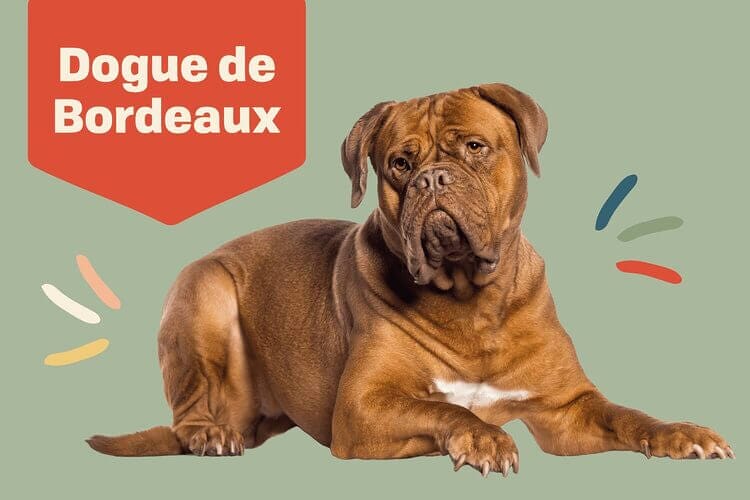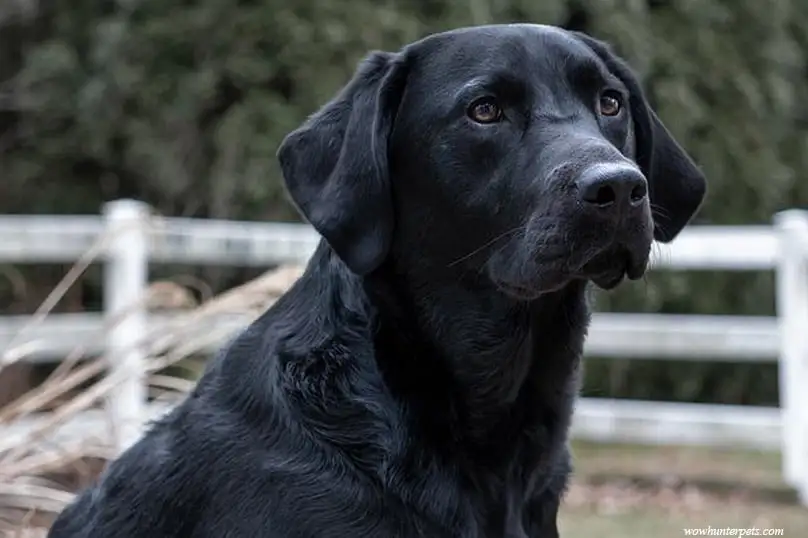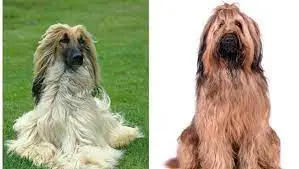The Gentle Giant: Unveiling the Dogue de Bordeaux

The Dogue de Bordeaux, also known as the French Mastiff, is a captivating and powerful large dog breed with a unique and fascinating history. Often nicknamed the “Gentle Giant,” these loyal companions are known for their impressive size, distinctive wrinkles, and unwavering devotion to their families.

- Origin: France
- Size: Giant
- Breed Group: Working
- Life Span: 7-10 years
- Coat: Short, smooth
- Temperament: Gentle, loyal, protective
- Exercise Needs: Moderate
- Training: Early socialization and consistent training required
- Health: Prone to certain health conditions like hip dysplasia and bloat
- Popularity: Moderately popular
Dogue de Bordeaux: A Legacy of Strength and Loyalty
The Dogue de Bordeaux boasts an ancient lineage, dating back to the days of the Molosser dogs used by the Romans for war and guarding. Nearly driven to extinction in the 19th century, dedicated breeders revived the breed, preserving its unique characteristics and gentle nature.
Appearance: A Majestic Presence
Dogue de Bordeaux are undeniably striking dogs. Their massive build, typically weighing 100-140 pounds, commands attention. Their signature feature is the heavily wrinkled face, adding to their expressive and often comical expressions. The short, smooth coat comes in various shades of fawn, mahogany, and brindle.

Temperament: Gentle Giants with Big Hearts
Despite their imposing size, known for their gentle and affectionate nature. They are loyal companions who thrive on human interaction and form strong bonds with their families. Their inherent protectiveness makes them excellent watchdogs, always alert and watchful over their loved ones.
Caring for Your Dogue de Bordeaux
While owning is a rewarding experience, it’s crucial to understand their specific needs. Moderate daily exercise is essential to maintain their health and well-being. Their short coat requires minimal grooming, but regular cleaning of their facial folds is necessary to prevent skin infections. Due to their brachycephalic (short-snouted) nature, prone to certain health conditions like hip dysplasia and bloat. Responsible ownership involves regular veterinary checkups and maintaining a healthy diet.
Finding Your Perfect Dogue de Bordeaux Companion

If you’re considering welcoming a Dogue de Bordeaux into your life, careful planning and research are crucial. Choosing a reputable breeder who prioritizes the health and temperament of their dogs is essential. Adopting a puppy from a rescue organization is another commendable option, offering loving homes to dogs in need.
While Dogue de Bordeaux prices can vary depending on breeder, location, and pedigree, potential owners should be prepared for a significant initial investment. Furthermore, the ongoing costs associated with food, veterinary care, and potential training should be factored into your decision.
Adopting a Dogue de Bordeaux
For those seeking to give a loving home to a Dogue de Bordeaux in need, consider reputable rescue organizations like Rescue (ddbrescue.org). These dedicated groups provide care and rehabilitation for abandoned or surrendered dogs, offering them a second chance at a happy life.

Training a Dogue de Bordeaux
Early socialization and consistent training are crucial for puppies. Their large size and strength necessitate responsible ownership and a firm, yet gentle, training approach. Positive reinforcement methods are highly effective in shaping their behavior and ensuring a harmonious coexistence.
Living with a Dogue de Bordeaux
Generally adaptable to various living situations but thrive in homes with ample space for them to move comfortably. Their calm and loving nature makes them suitable companions for families with older children. However, due to their size and potential for exuberance, supervision around smaller children is crucial.
Dogue de Bordeaux Health Problems
While generally healthy dogs, Dogue de Bordeaux are predisposed to certain health conditions like:
- Hip dysplasia: A common condition in large breeds, affecting the hip joint development.
- Bloat: A life-threatening condition where the stomach twists and traps gas.
- Brachycephalic syndrome: This syndrome encompasses breathing difficulties associated with their short snouts.
Regular veterinary checkups, a balanced diet, and maintaining a healthy weight are crucial in preventing and managing these potential health concerns.
“The Dogue de Bordeaux is not just a pet, it’s a family member. Their loyalty and affection are unmatched.” – John D. Cline, Renowned Dog Breeder
What are the most common health problems in Dogue de Bordeaux?
As mentioned earlier, prone to hip dysplasia, bloat, and brachycephalic syndrome. Early detection and proper management are crucial for maintaining their health and well-being.
Are Dogue de Bordeaux good with children?
Can be wonderful companions for families with older children. However, due to their large size and potential for clumsiness, supervision around younger children is essential.
How much exercise does a Dogue de Bordeaux need?
Moderate daily exercise is crucial. This can include walks, playtime, and activities that stimulate their minds.
Are Dogue de Bordeaux easy to train?
While intelligent and eager to please, require consistent and positive reinforcement training methods due to their size and strength. Early socialization is crucial for shaping their behavior and ensuring a well-adjusted companion.
What is the average lifespan of a Dogue de Bordeaux?
The average lifespan is 7-10 years.
Related Breeds and Group Affiliation
The Dogue de Bordeaux belongs to the Working Group, alongside other powerful and intelligent breeds like German Shepherds, Rottweilers, and Doberman Pinschers. While sharing some characteristics with these fellow large dog breeds, possesses a distinct personality and appearance.
Is a Dogue de Bordeaux Right for You?

The decision to welcome a Dogue de Bordeaux into your life is a significant one. Their size, specific needs, and potential health concerns necessitate careful consideration. However, for those seeking a loyal, loving, and undeniably unique companion, can be a truly rewarding addition to the family.
Conclusion: A Gentle Giant Worth Knowing
The Dogue de Bordeaux is a captivating breed with a fascinating history and a gentle, protective nature. Understanding their specific requirements and potential challenges is crucial for responsible ownership. Yet, for those willing to provide the necessary care and attention, can offer a lifetime of companionship and unwavering loyalty.

Petscaretip – How To Care Your Pets
Address: 809 Dallas St, Houston, TX 77002, USA, Houston, TX, United States, Texas
Email: [email protected]










